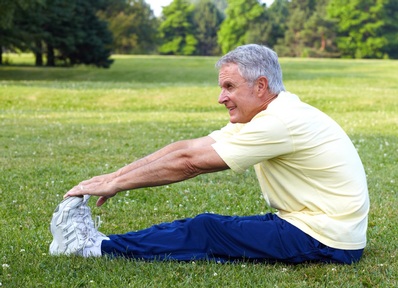Increasing activity levels in middle age could prevent brain ageing
A new study has suggested that exercising between the ages of 40 and 50 could help prevent the brain from shrinking, potentially adding years to life expectancy.

The research, published in the Neurology medical journal, suggests that people with poor levels of physical fitness may be linked to a smaller brain size 20 years later.
Researchers at Boston University School of Medicine in the United States, believe that a sedentary lifestyle accelerates the ageing process, speeding the rate at which the brain shrinks.
Study author Dr Nicole Spartano, said: “We found a direct correlation in our study between poor fitness and brain volume decades later, which indicates accelerated brain ageing.”
Previous research has suggested that all brains shrink with age, a natural part of the ageing process. Yet, experts now believe that exercise levels determine the rate at which this happens.
The scientists analysed medical data from 1,583 people who enrolled in the Framingham Heart Study and were tracked over 20 years.
The participants underwent a fitness test on a treadmill in the late 1970s and early 1980s, when they were each aged between 31 and 49.
Each volunteer ran on the treadmill until their heart reached a certain rate. Two decades later, between 1998 and 2001, the volunteers underwent a series of MRI brain scans and neurological tests.
The researchers also analysed the results when they excluded 1,094 participants who developed heart disease or started taking beta blockers to control blood pressure or heart problems.
Exercise capacity was estimated using the length of time participants were able to exercise on the treadmill before their heart rate reached a certain level.
The researchers found that participants had an average estimated exercise capacity of 39 mL/kg/min, or the maximum amount of oxygen the body is capable of using in one minute.
For every eight units lower a person performed on the treadmill test, their brain volume was smaller two decades later, equivalent to two years of accelerated brain ageing.
When the participants with heart disease or those taking beta blockers were excluded, every eight units of lower physical performance was associated with reductions of brain volume equal to one year of accelerated brain ageing.
Researchers found that participants whose blood pressure and heart rate increased at a higher rate during exercise were also more likely to have smaller brain volumes two decades later.
Dr Spartano has suggested that people with poor physical fitness often have higher blood pressure and heart rate responses to low levels of exercise compared to people with better fitness.
However, she added: “While not yet studied on a large scale, these results suggest that fitness in middle age may be particularly important for the many millions of people around the world who already have evidence of heart disease.”
Researchers noted that the study is observational and does not prove that poor physical fitness causes a loss of brain volume.
Latest News
 29-Jul-24
Dementia Bus gives carehome.co.uk staff insight into life with dementia
29-Jul-24
Dementia Bus gives carehome.co.uk staff insight into life with dementia
 01-Mar-24
Find out the top care homes in 2024
01-Mar-24
Find out the top care homes in 2024
 21-Mar-23
UK's top care homes in 2023 revealed
21-Mar-23
UK's top care homes in 2023 revealed
 03-Jan-23
carehome.co.uk launches free care helpline
03-Jan-23
carehome.co.uk launches free care helpline
 13-Dec-22
5 mins with Emily Whitehurst, chief operating officer for Constantia Healthcare
13-Dec-22
5 mins with Emily Whitehurst, chief operating officer for Constantia Healthcare